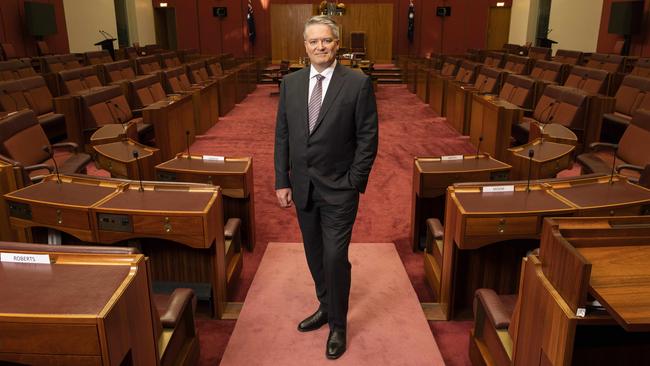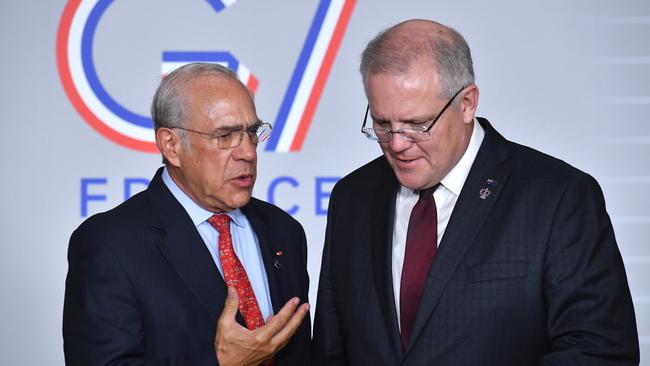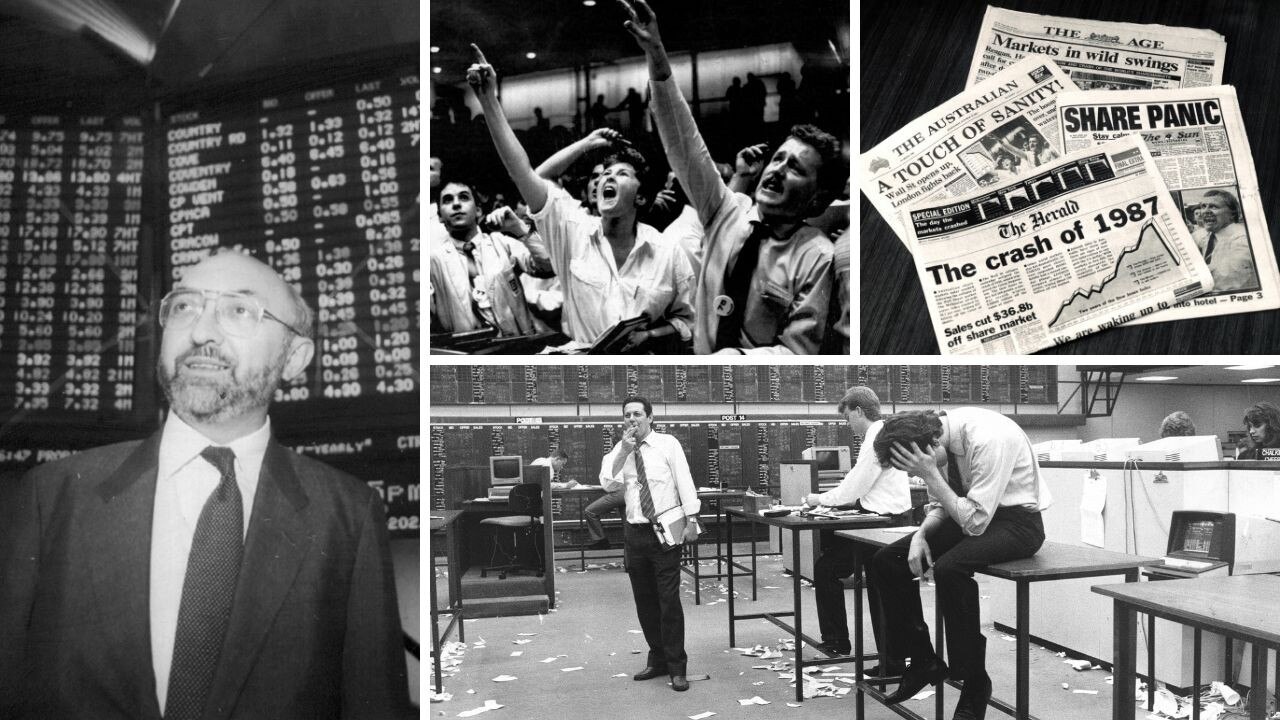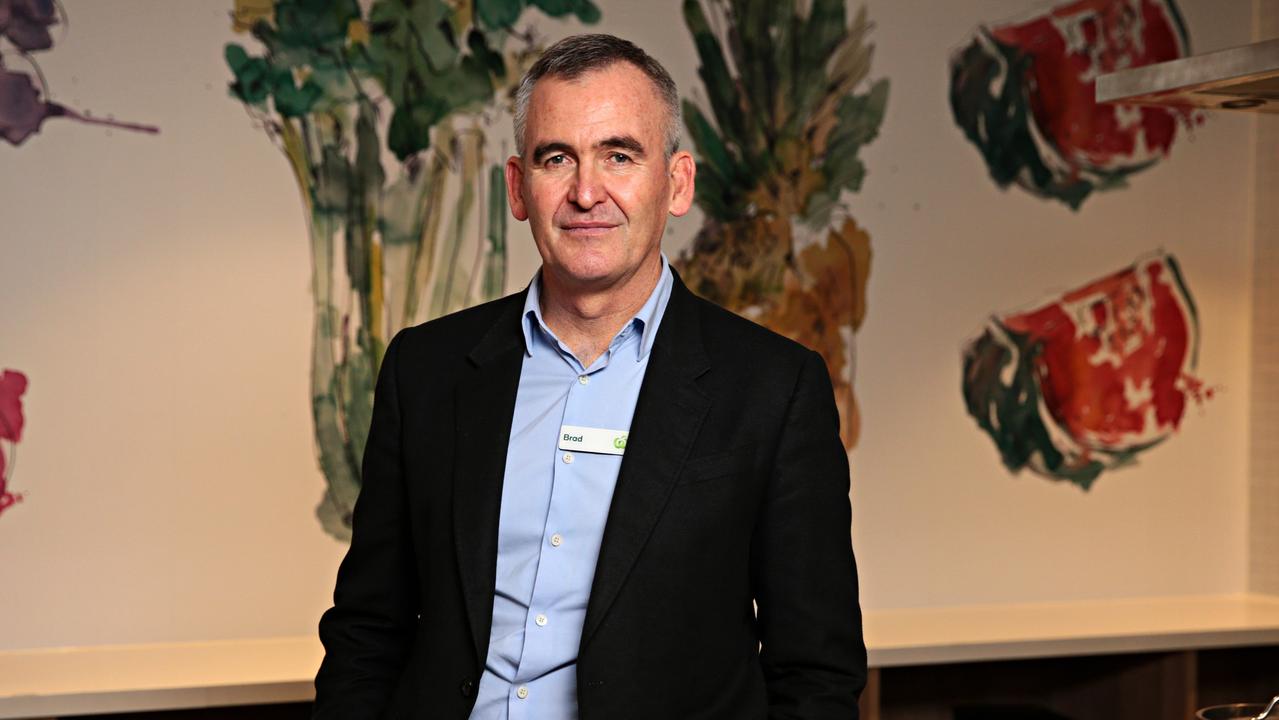OECD role is good for Mathias Cormann but little use for Australia
The appointment to the Paris-based role might be great for the former finance minister, but what exactly does it do for Australia?

Terry McCrann
Don't miss out on the headlines from Terry McCrann. Followed categories will be added to My News.
The Australian Government has spent a great deal of taxpayer money to get former finance minister Mathias Cormann elected to the top job in the Paris-based OECD, the so-called ‘rich countries club’.
It’s certainly great for Cormann. He will get a $360,000 tax-free salary – presumably, on top of his not exactly age pension-level parliamentary pension; live in a very nice house in a very nice part of Paris; and essentially be guaranteed a job or jobs-for-life on the international politico-bureaucratic circuit.
Indeed, unless he behaved very badly – like a belching cow in a climate-conscious Parisian salon – he would get at least ten years in the OECD job for starters.
Although appointed for five-year terms, every previous OECD secretary-general has had ten years in the plum job – and indeed the current incumbent, Mexican Angel Gurría, has had the job for 15 years.
So it’s great and indeed spectacularly great for Cormann, but what exactly does it do for Australia?
Or to put it more bluntly, what does it do to justify the spending of at least some hundreds of thousands of dollars of taxpayer money, maybe even into the millions, to get Cormann the job?

The money spent, on the direct authorisation of the prime minister Scott Morrison, has been many, many multiples of the $20,000 former Australia Post CEO Christine Holgate spent on those infamous watches – which the very same PM branded such a disgraceful waste of taxpayer money and for which he personally hounded her out of her job.
What does it do for Australia? Pretty much as close to absolute zero that you can get.
About as much as winning membership of one of the dozens of UN committees – or even UN secretary-general, a position that a certain former-PM would have given his eyeteeth, or recently acquired beard, to get.
Oh sure, the PM in particular will wax lyrical on how great a triumph it is for Australia, recognising our global significance, making Australia’s voice heard in the international decision-making space.
But that’d be like saying that the appointment of a Victorian to head the ABS, the Australian Bureau of Statistics, would somehow be good for Victoria.
For that is essentially what the OECD is – an international version of the ABS, a data-gatherer and issuer, in its case twice-a-year, of increasingly meaningless economic forecasts.
At least, the ABS hasn’t joined that fatuous practice.
But even in that forecasting space, the OECD is just one of many. Think IMF, think World Bank. All spewing out endless forecasts, all spewing out repeated ‘amendments’ to those forecasts; and who really cares or even remembers, after the initial headlines?
We used to be in thrall to the ‘team’ from the OECD visiting Australia once-a-year to gather data and talk to people, and then waiting with bated breath to see what they would forecast for the year ahead.
What they would forecast would be mostly what Treasury had told them to forecast, and so would prove just as inaccurate – as not only Treasury but every other forecast.
Arguably, the best of them is the Reserve Bank – it’s certainly the most important, because it actually makes big decisions about interest rates on the basis of its forecasts.
But look what happened last year – and I don’t mean how no-one, understandably, forecast the virus recession.
Coming out of it, the RBA as recently as November forecast the economy had shrunk by a rather brutal 4 per cent over 2020.
This February, after the year had actually ended, the RBA halved that to a 2 per cent drop. The actual figure was just 1 per cent (OK, 1.1 per cent to be exact).
Yes, the OECD supposedly promotes a liberal, free – or rather, European-style ‘free’ – market international economic agenda.
But the OECD as an organisation can’t actually do anything about it. It’s just a talkfest – in English and French.
True, apart from the individual country economic assessments and forecasts and the twice-yearly omnibus member-country forecasts, it publishes 300-500 assorted other studies, pamphlets and tracts.
All in both French and English.
But they just sit almost universally unread, gathering dust – these days, virtual dust somewhere in thousands of hard-drives around the world.
I must say that his election was somewhat of a surprise to me, as the OECD is not just a rich-countries club, but more specifically a European one.
Its membership largely overlaps the European Union. The EU has 27 members, the OECD 37 and 22 of the EU’s 27 are OECD members.
Yet despite that, Cormann beat out not just a European politico-bureaucrat, but one who had lived her entire life in the very cosy Paris-Brussels-Strasbourg insider bubble of European politico-bureaucratic organisations, Sweden’s Cecilia reserve.
Cormann also won over the aggressive campaigning against him of the Australians Greens. But they needn’t worry; there’s no way he will take his climate scepticism to Paris. He’s no belching cow.
Originally published as OECD role is good for Mathias Cormann but little use for Australia



